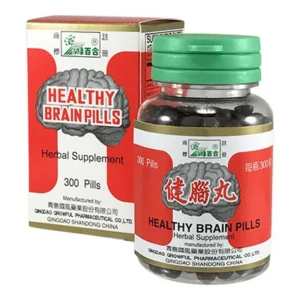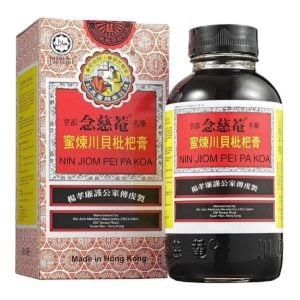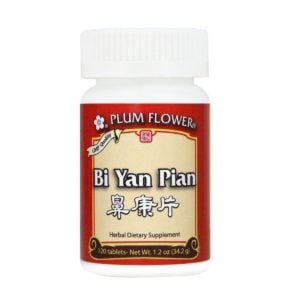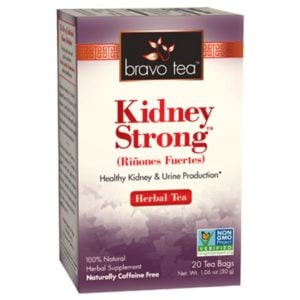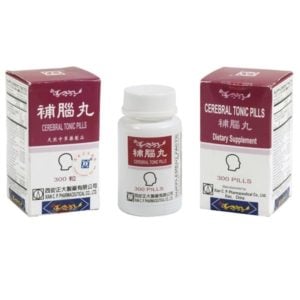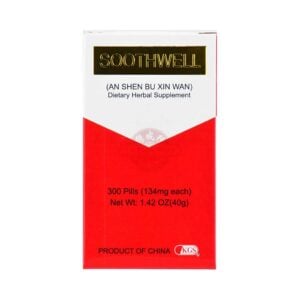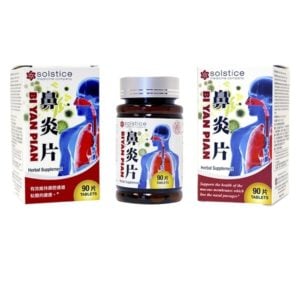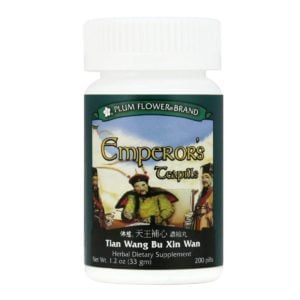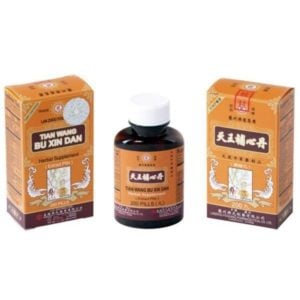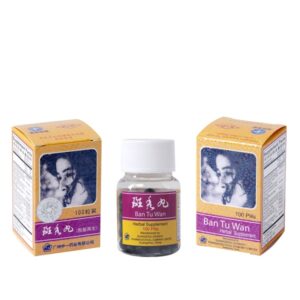Wu Wei Zi
English Name: schisandra berry, Chinese magnolia vine fruit, five-flavor fruit.
Literal Translation: “five-flavor seed”
Pharmaceutical Name: Fructus Schisandrae Chinensis
Medica Category: Astringent Herbs
Properties: Wu Wei Zi enters the Lung, Heart, and Kidney channels; it is sour in nature and warm in temperature.
What is Wu Wei Zi?:
The Chinese Herb Wu Wei Zi is the dried fruit of the Chinese magnolia vine (Schisandra chinensis Baill.; alternate accepted species S. sphenathera Rehd. et Wils.), a deciduous woody vine native with oval, pink leaves and bright red berries. These berries have a few different common names (e.g. schisandra berry, magnolia berry), but the most interesting is “five-flavor seed”. This is the literal translation from Chinese, and it is so named because it contains all five flavors (sour, sweet, pungent, bitter, and salty). In fact, if you pop a fresh berry in your mouth and suck on it for awhile, it will actually change flavors in your mouth.
For (medicinal) use as a single herb (as a gentle tonic and thirst quencher), Wu Wei Zi can be made into tea, macerated into juice, or tinctured; for more targeted use in TCM formulas, it is dried and ground into powder or decocted.
Traditional Chinese Medicine (TCM) Therapeutic Actions of Wu Wei Zi:
Wu Wei Zi is astringent in its actions and most commonly associated with stopping various forms of “leakage”. This covers a fairly wide range of clinical applications:
- It contains the leakage of Lung qi while also nourishing the Kidney (to help it grasp the breath and pull it down into the body). This makes it a valuable herb to address chronic cough (of various etiologies), dyspnea, and asthma;
- It generates fluids and assists other herbs in formula to stop various forms of deficiency sweating, such as spontaneous sweating and night sweats. It also helps to alleviate excessive thirst that also presents with such conditions;
- It enters the Kidney channel to bind jing (essence). This action addresses
- Chronic diarrhea from deficiency (especially early-morning, “cock’s-crow” diarrhea);
- Spermatorrhea and nocturnal emissions; and
- Polyuria and urinary incontinence/enuresis.
Wu Wei Zi addresses shen (spirit) disturbance that is a result of deficient yin and blood failing to properly nourish the Heart. Clinical presentations of this pattern include such symptoms as: insomnia, restlessness, palpitations, and anxiety.
–safety/clinical notes:
Contraindicated for those with uncleared external pathogens.
Contraindicated for those with excess internal heat conditions.
Contraindicated for those with early-stage coughs or rashes.
This herb significantly counteracts cycloheximide-induced amnesia. Its effects are amplified by treatment with serotonergic receptor antagonists and reduced by serotonergic agonists, GAB(A) and cholinergic receptor antagonists.
Products Containing Tag: Wu Wei Zi – Schisandra Berry – Fructus Schisandrae Chinensis
-
Healthy Brain Pills (Jian Nao Wan) – by LV Bai He Brand
Add to Cart$11.99
-
Pei Pa Koa – Loquat Chinese Cough Syrup – (300ml /10fl oz)
Add to Cart$25.34
-
Plum Flower – Bi Yan Pian
Add to CartStarting at $18.93
-
Kidney Strong Tea – by Bravo Tea
Add to CartStarting at $6.99
-
Cerebral Tonic (Bu Nao Wan) for Mental Alertness
Add to Cart$18.49
-
An Shen Bu Xin Wan (Soothwell)
Add to CartStarting at $8.99
-
Plum Flower – Emperor’s Tea Pills (Tian Wang Bu Xin Wan)
Add to CartStarting at $21.23
-
Solstice Medicines (Ci Brand) – Tian Wang Bu Xin Dan
Add to Cart$11.99
-
Ban Tu Wan (Alopecia Areata Pill)
Add to Cart$15.99

